Jerusalem's Sheikh Jarrah: The land dispute in the eye of a storm
- Published

Samira Dajani and Adel Budeiri are among the Palestinians threatened with eviction
Samira Dajani and Adel Budeiri's garden feels like an oasis - a peaceful place of bougainvillea, lavender and shady fruit trees at the centre of a furious, incendiary dispute which helped to trigger a conflict.
The Palestinian couple's single-storey stone house in the East Jerusalem neighbourhood of Sheikh Jarrah is one of 14 where Palestinian residents - 300 people in all - face eviction to make way for Jewish settlers, in a case that has made it all the way to Israel's Supreme Court.
The process was halted as violence erupted in Jerusalem, just before the latest fighting between Israel and the Palestinian militant group Hamas in the Gaza Strip.
But the danger hasn't gone away.
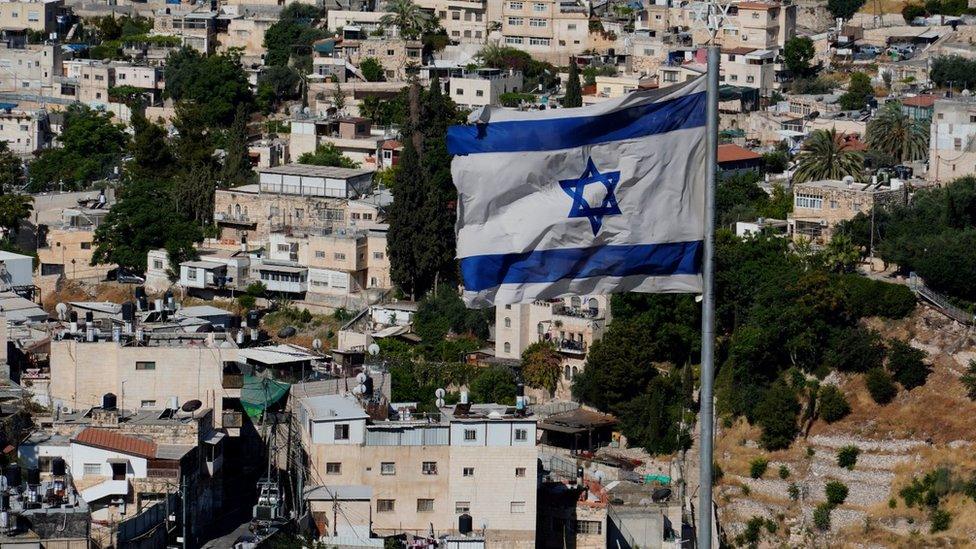
One of Jerusalem's deputy mayors says the families are facing eviction for non-payment of rent
While Samira deadheads the flowers, Adel shows me black and white photos from the 1950s and 60s, before the couple met and married.
"It's very hard," Adel says. "We think that the very happy period that we lived in this house is going to end. We feel that we'll be refugees for the second time."
Both their families were driven from West Jerusalem during Israel's war of independence in 1948. The houses the Dajanis and Budeiris owned are just a few kilometres away, but Israeli law means they can never be recovered.
In the 1950s, the UN funded a Jordanian project in Sheikh Jarrah to build homes for displaced Palestinians. But some of the land involved had been owned by two Jewish associations before the creation of the state of Israel.


After Israel captured East Jerusalem from Jordan in the 1967 Six Day War, the two associations took legal action to recover the property.
The disputed land, close to the tomb of Shimon HaTzadik (Simon the Righteous), a Jewish high priest from antiquity, is being claimed by settler groups, who argue that the Palestinians are, in effect, squatters.
It should be added here that pretty much everything about this whole tortuous story - the land and its ownership - is the subject of furious dispute.
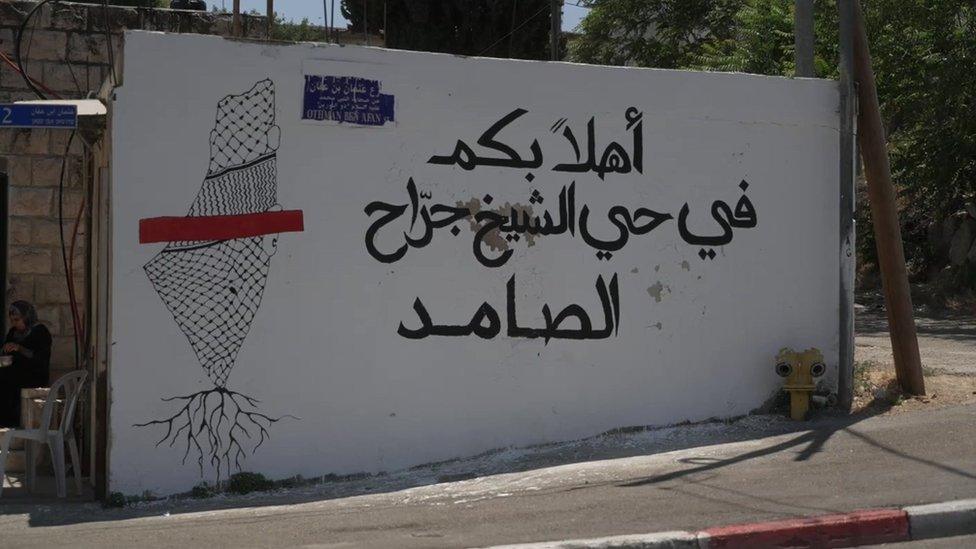
A mural says in Arabic: "Welcome to the steadfast Sheikh Jarrah neighbourhood"
Outside, the street is quiet, with few signs of the tensions that erupted here during Ramadan and on into the first days of the recent conflict between Israel and Hamas.
There are police barriers at each end of the street. Jewish settlers move about freely but if you're Palestinian and you don't live here, you can't get in.
A mural, painted on a nearby wall, shows a map of pre-1948 Palestine, wrapped in a keffiyeh, or traditional Arab headdress, with the slogan: "Welcome to the steadfast Sheikh Jarrah neighbourhood."
Further down, on the opposite side, the names of 28 extended families threatened with eviction have been daubed on another wall.
Opposite, a house taken over by settlers more than 10 years ago is adorned with Israeli flags, an illuminated Star of David and a lot of security cameras.

Jewish settlers have moved in to some properties in Sheikh Jarrah in recent years
Israeli officials say the Sheikh Jarrah issue is nothing more than "a real estate dispute" and that the settlers have the law on their side.
In 2003, the two Jewish associations sold the rights to the property to Nahalat Shimon Ltd, one of several organisations based in the United States which support the efforts of Jewish settlers to move into Palestinian areas of Jerusalem.
"These families are going to be evicted for non-payment of rent," says one of Jerusalem's deputy mayors, Fleur Hassan-Nahoum, referring to a controversial 1987 court decision which recognised the ownership of the Jewish associations but defined the Palestinians as protected tenants.
"So you know we have a property dispute that has been conflated into a political dispute in order to invent a provocation.
"I don't see why East Jerusalem has to be Judenrein," she says, using the term the Nazis coined for a Europe free of Jews.
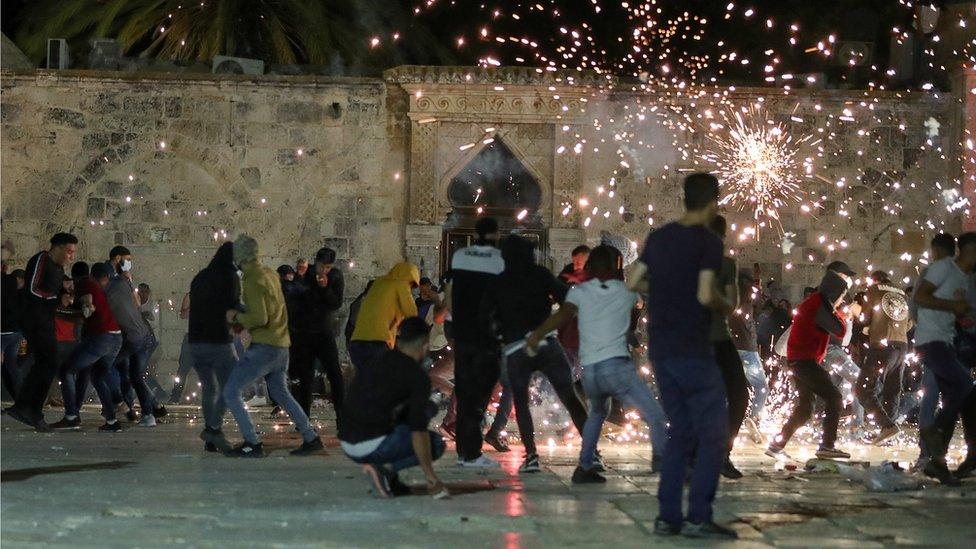
Anger over the possible evictions contributed to spiralling Israeli-Palestinian tensions in Jerusalem
Tempers flared in Sheikh Jarrah during the recent fasting month of Ramadan.
A dispute decades in the making exploded into violence.
At the nearby al-Aqsa mosque, there was more trouble. Jerusalem, it seemed, was on fire.
Sensing an opportunity to enhance their standing among Palestinians outside the Gaza Strip, Hamas militants joined in, firing rockets straight at the city.
When a ceasefire was announced after 11 days of conflict, Palestinians in Jerusalem celebrated what some saw as a victory for Hamas.
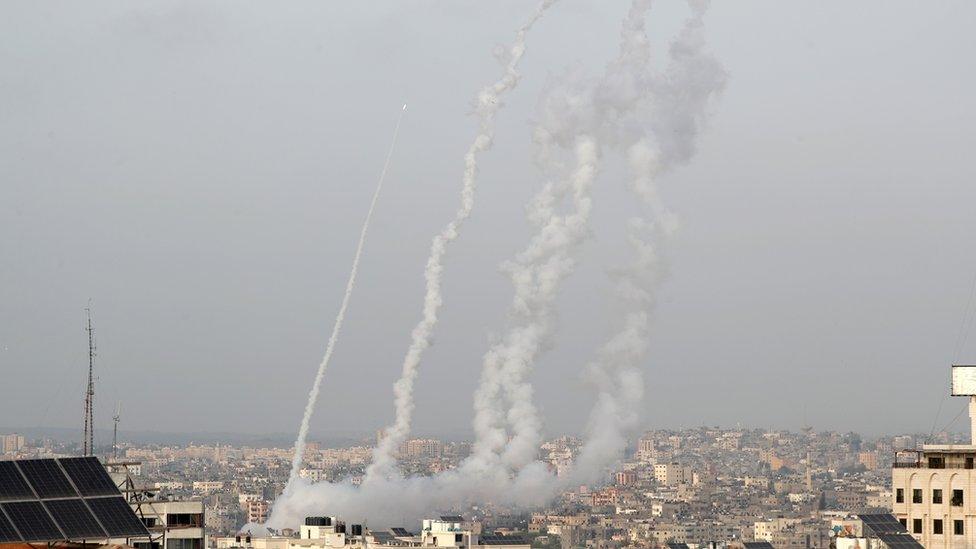
Hamas militants fired rockets towards Jerusalem on 10 May, triggering retaliatory Israeli air strikes
"It is not an accident that the Temple Mount and Sheikh Jarrah were the triggers of this convulsive violence," says Daniel Seidemann, an Israeli lawyer who has been charting Jewish settlement activities in East Jerusalem for 30 years.
"There is a concerted effort to displace the Palestinians who live there, and to replace them with biblically motivated settlers. That's what's happening."
Jews and Arabs were both displaced in 1948, he says, but there the similarity ends.
"You have one city, one war, two peoples, both losing property."
"One can recover the property; the other cannot. That is the original sin of Sheikh Jarrah."
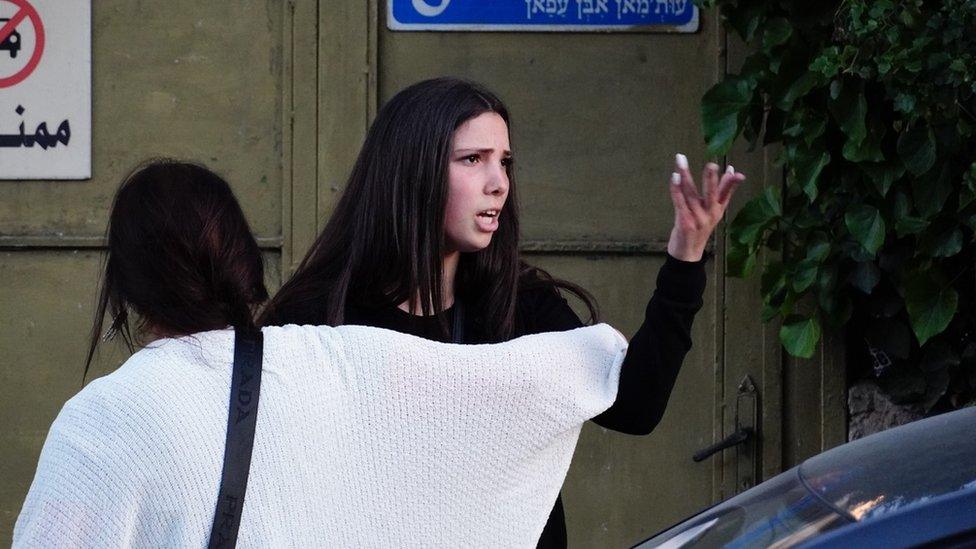
A court ruling on the fate of Palestinian families was postponed a day before the Gaza conflict began
Mr Seidemann says the targeting of four Arab areas - two in Sheikh Jarrah and two in Silwan, to the south - represent Israel's first effort at large-scale displacement of Palestinians in Jerusalem since the immediate aftermath of the 1967 war.
And he says the process is incendiary.
"We're taking the radioactive issue of Jerusalem and the radioactive issue of displacement and we're uniting them," he says.
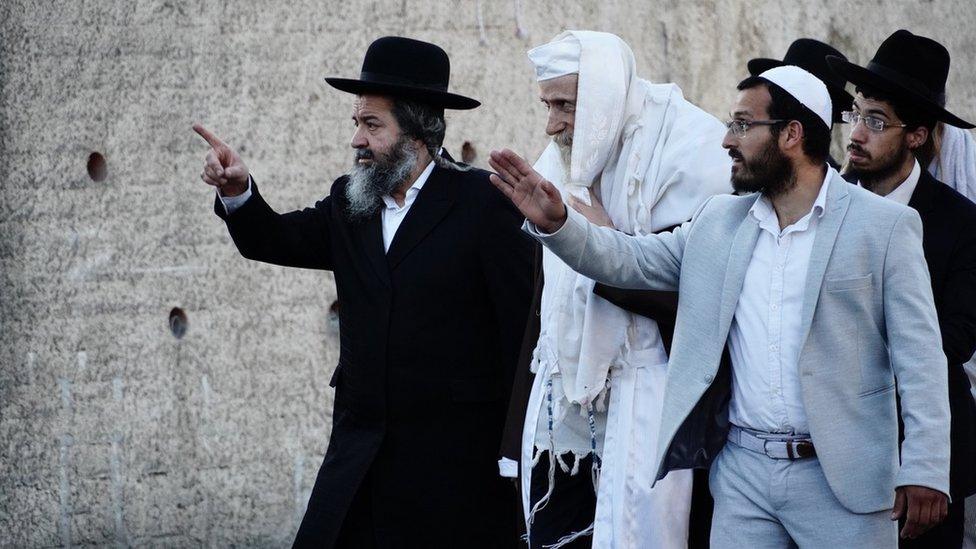
A ceasefire ended the fighting between Israel and Hamas, but the dispute over Sheikh Jarrah continues
Back in their garden, Adel and Samira are threatened with eviction on 1 August.
They have just a couple of months in which to win or lose the house they've shared for 47 years.
Adel says it's not a fair fight.
"It's become very clear that we are not battling with settlers. We are battling with the government," he says.
"We don't have the strength to battle with the Israeli government."
Hamas may have gone to war over the future of Jerusalem, but for the 28 families of Sheikh Jarrah, their situation is just as precarious after as it was before.